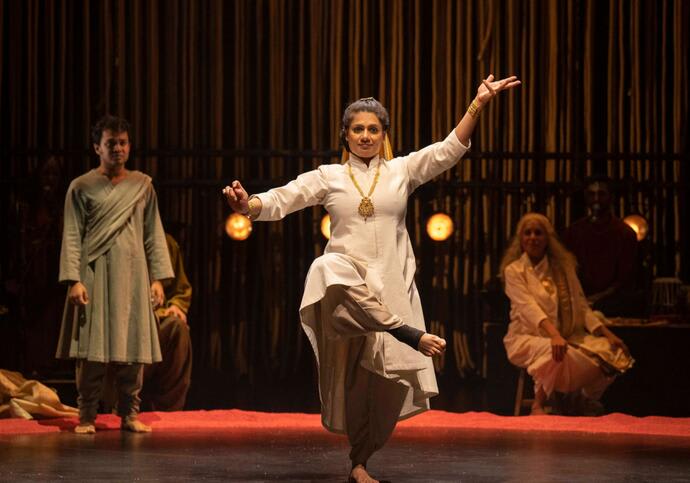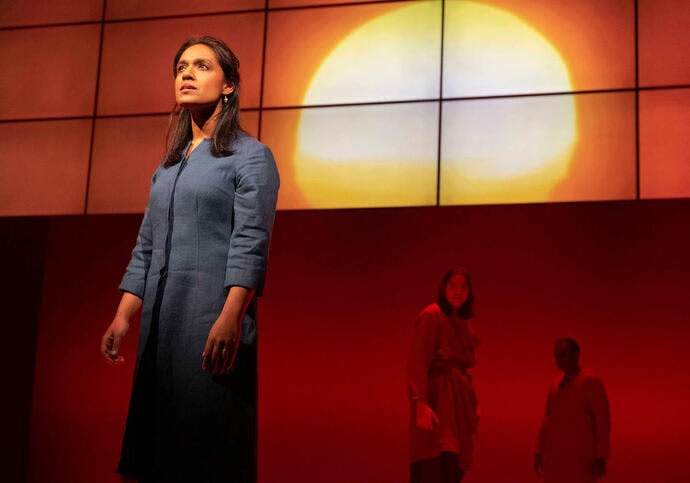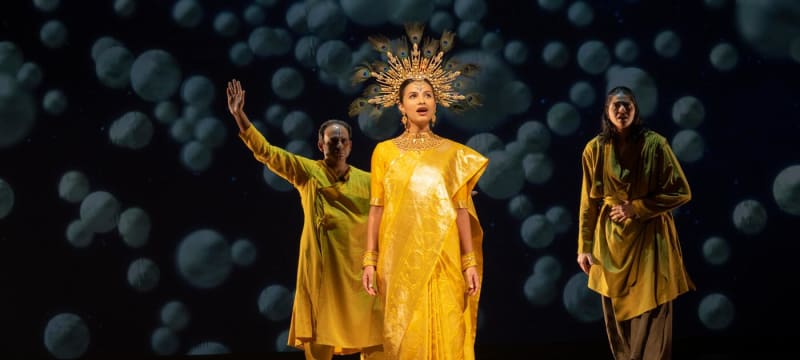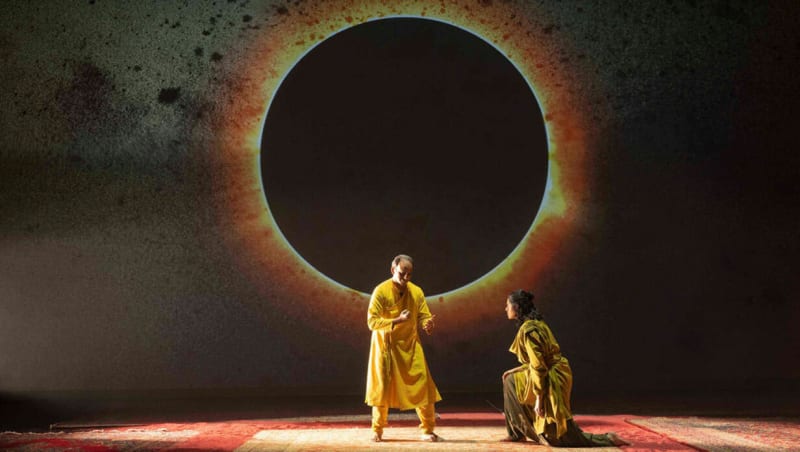The ancient Sanskrit epic Maharabharata has more than 10,000 verses; it is nearly eight times the length of the Bible. How do you put that on stage?
In 1985, Peter Brook staged it in a quarry near Avignon (and then at the Tramway in Glasgow) in a version that lasted nine hours; an elemental production that featured earth, fire and water. Toronto-based company Why Not Theatre’s adaptation of the the seminal Hindu poem—presented in two parts: Karma and Dharma—is shorter at five hours, but still full of impact.
It starts with a bowl for ritual fire set centre-stage at the heart of a ring of red powder, not in this story the joyful red of Divali but the red of forest fires and shed blood. These tales of gods, warring humans and destruction of the natural world date back millennia but seem as timely as ever.
Miriam Fernandes, co-adaptor and-director with Ravi Jain, is the storyteller who shares all this with us. It begins with King Janamejaya, who plans to kill all the snakes in the world in revenge for the death of his father, killed by a snake. The storyteller, who is there to dissuade him and to show what such action can lead to, starts to tell the history of the Pandava and Kaurava clans, feuding relations out for revenge on each other and control of the kingdom. The narration blends smoothly with re-enaction that incorporates mime and dance that draws on traditional forms.
Fernandes sustains an energy of delivery and a rapport with the audience through the whole performance, herself sometimes becoming part of the action. Each new development is clearly presented, but the plethora of names, the succession of incident and the characters’ scheming is complex. It is not easy to take it all in, but “don’t be confused by plots,” she tells us, “within the river of stories flows infinite wisdom. This is your true inheritance.” She will later inform us, “the story is an illusion for you to find a greater meaning.”
For Karma, Lorenzo Savoini’s set is strikingly simple: behind the line of musicians at the rear of the stage are coiled ropes, like the snakes of the story. They are raised to form a background; the emphasis is on that red circle which gradually spreads across the stage. In Dhama, Hana S Kim’s projections and video play a major role, sometimes giving close-ups of actors’ faces, a vast sun or scudding skies and star dazzle. The traditional instruments and constant tabla rhythms of the first part give way to an orchestral instrumentation and modern sounds.
High points of the story, and of the production, are the Game of Dice, when kingdom, self and even wife are lost, ritually presented, and the great battle of Kurukshetra between the two clans which is narrated not acted out. Instead, we see the god Shiva, the Destroyer, dancing its violence in multiple gyrations stunningly performed by Jay Emmanuel.
Another high point is the presentation of the Bhagavad Gita, a key text of Hindu scripture, which is presented as operatic aria, sung in Sanskrit with English subtitles. It is beautifully sung by Meher Pavri as the voice of Krishna, dazzlingly dressed with a sunburst headdress by designer Gillian Gallow, whose often sumptuous costumes look lovely,
This is a strong company, cast gender-blind, all giving committed performances, including the actor who stepped in on press night still script-in-hand as an urgent replacement. They include actors from Australia and the UK as well as Canada, but all of South Asian ancestry, part of that diaspora, as are the adaptor-directors.
On days when both Karma and Dharma are being performed, there is also a presentation that shares the traditional experience of being told a story while sharing a meal.
The photographs were taken at Canadian performances.




